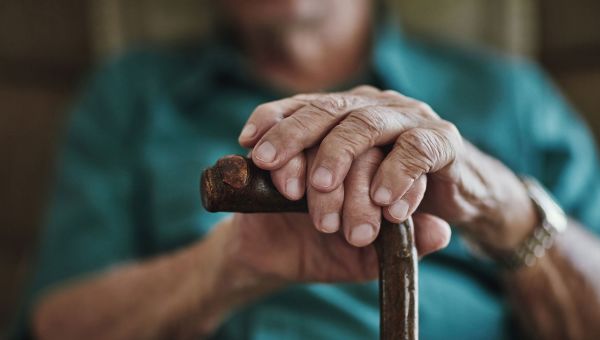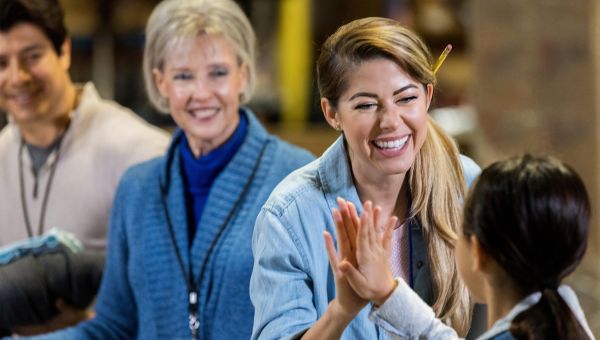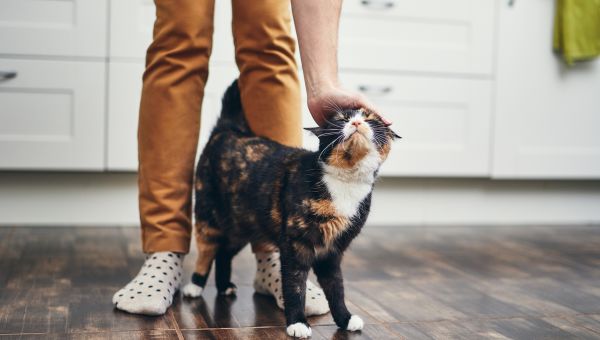4 simple ways to avoid feeling lonely
Loneliness and isolation can have serious health effects—but being proactive goes a long way.
Updated on August 2, 2023

Loneliness is a growing epidemic in the United States, affecting millions of people of all ages. Those who feel lonely or socially isolated may have increased chances of dementia, stroke, high blood pressure, and coronary artery disease. Loneliness is also linked to a higher risk for early death.
Learn why so many Americans feel alone—and how to improve your social connections.

Who feels lonely—and why
Anyone can feel lonely at any time, but some factors can influence your risk, including living alone, being in poor health, and growing older. “As you age, particularly when you leave work or family drifts away, relationships change and meeting new people becomes harder,” says Paul Irving, senior fellow at the Milken Institute and former chair of its Center for The Future of Aging in Santa Monica, California. Mobility issues may limit the ability to socialize or visit loved ones, too.
Irving believes societal changes also play a role. "More people [are] single and uncoupled," he adds, while others are having smaller families.
Spending increasing time on social media may factor in, as well. For example, one study published in July 2017 in the American Journal of Preventive Medicine looked at a nationally representative group of almost 1,800 American adults aged 18 to 32. Those with higher levels of social media use felt more socially isolated than those with lower levels of use.
Of course, there are ways to mitigate your loneliness—or keep those feelings from popping up in the first place. Here are four suggestions.

Volunteer
Volunteering can be an effective way to address loneliness for people of all ages. Irving says it's an excellent way to relieve feelings of isolation.
Research supports this. One March 2018 study published in the Journal of Gerontology focused on the link between giving back and the reduction of loneliness among widows. Researchers found that participants who volunteered at least two hours per week had similar feelings of loneliness as a happily married person.
To find the volunteer opportunity that's right for you, you can search aggregate websites like:
- AmeriCorps and Senior Corps
- Volunteer Match
- Idealist
- AARP
- The US Department of Veterans Affairs' VA Voluntary Service
Or reach out to your local government offices via phone or website; a representative can often point you to openings in your area, including those of religious and community organizations.

Spend time with a pet
Pets aren't just loveable little family members; they also help keep you fit, reduce stress—and there's good evidence they can help stave off loneliness, too. Dogs, for example, can instill owners with a sense of purpose, as well as motivation to get up each morning. Walking your furry pal opens you up to the possibility of social connection, too.
If you're interested in adopting—or even just spending time with a pet, consider:
- Volunteering: Local shelters often look for help to walk or feed the animals.
- Fostering guide dogs: Organizations like Guide Dogs for the Blind allow you to raise puppies until they're ready for formal training.
- Adopting a pet: You can visit your local rescue organizations, or head online to websites like ASPCA Adopt a Pet or Pets for Vets, which matches military Veterans with rescued animals.

Try a sport
Whether you're playing on a recreational softball team or joining a darts league, engaging physically can open you up to social connections—and studies have linked both individual and team sports to fewer feelings of loneliness.
How to get involved? Start by reaching out to your town's parks and recreation department—they'll almost certainly have suggestions for leagues and outdoor opportunities. Local churches, bars, and restaurants often field teams, as well. And if you're still stumped? Try visiting Meetup.com. Designed to help you find others in your community with similar interests, this gathering-oriented website includes sections for Sports and Recreation, Social Activities, Hobbies and Passions, and Games.

Join a Community Organization
In his book Bowling Alone, author Robert D. Putnam argues that a lack of civic engagement has led many Americans to feel disconnected from others socially. Whether you ascribe to his theory or not, finding time to support your community with like-minded people could be important to addressing loneliness. Service-oriented organizations from Knights of Columbus, to the PTA, to Boy Scouts and Girl Scouts can help you improve your emotional state, as well as the world around you.
For older adults who may find it difficult to attend events, rideshares can help you leave your home and spend time with other people. To discover what affordable car services are available for you, contact the U.S. Administration on Aging at 1-800-677-1116 or visit their Eldercare Locator website.

Campaign to End Loneliness. Fact Sheet: Risk Factors. Accessed October 19, 2022.
Centers for Disease Control and Prevention. Loneliness and Social Isolation Linked to Serious Health Conditions. Last reviewed April 29, 2021.
Primack BA, Shensa A, Sidani JE, et al. Social Media Use and Perceived Social Isolation Among Young Adults in the U.S. American Journal of Preventive Medicine. 2017. 53(1), P1-8,
Carr DC, Kail BL, et al. Does Becoming A Volunteer Attenuate Loneliness Among Recently Widowed Older Adults?, The Journals of Gerontology: Series B, Volume 73, Issue 3, March 2018, Pages 501–510.
McConnell AR, Brown CM, et al. Friends With Benefits: On the Positive Consequences of Pet Ownership. Journal of Personality and Social Psychology. 2011, Vol. 101, No. 6, 1239 –1252.
Charnetski CJ, Riggers S, Brennan FX. Effect of petting a dog on immune system function. Psychol Rep. 2004 Dec;95(3 Pt 2):1087-91.
Pels F & Kleinert J. Loneliness and physical activity: A systematic review. International Review of Sports & Exercise Pyschology. 2016. Volume 9, Issue 1.
Haugen T, Safvenbaum R, Ommundsen Y. Sport Participation and Loneliness in Adolescents: The Mediating Role of Perceived Social Competence. Current Psychology. June 2013. 32(2):1-14.
British Psychological Society (BPS). "The loneliness of the individual athlete." ScienceDaily. ScienceDaily, 12 December 2016.
More On


video

article


video


video


video
